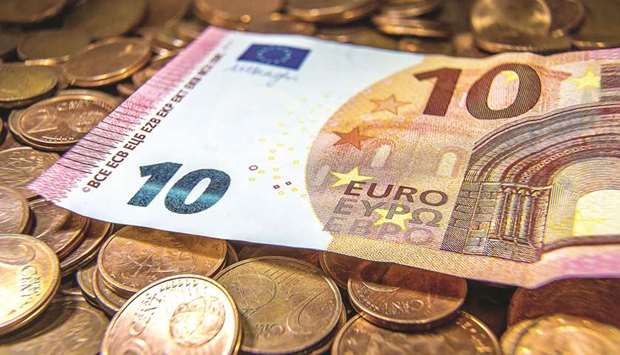The reasons to ditch the euro are adding up for investors. Not only are policy makers considering more stimulus, but worse may be in store if the US opens a new European front in its trade war.
The chances of a respite from the common currency’s two- week slump look slim as the US Commerce Department is expected to opine on whether car imports represent a threat to national security.
The European Union will be the “main casualty” of any new tariffs, according to RBC Capital Markets.
The euro sank to a three-month low on Friday after the European Central Bank’s Benoit Coeure said the region’s slowdown is “stronger and broader” than expected and that new stimulus measures are possible.
This year is off to a bad start for euro bulls who expected the currency to flourish as investors pivoted from an overvalued dollar. That call fared poorly in 2018 and looks no healthier now. Political risks are rising as populists gain traction, with a snap election called in Spain.
Italy is in recession, and Germany could also buckle if the US imposes import levies on European automakers.
“It’s really hard to build a bullish euro case,” said Bipan Rai, head of North American foreign-exchange strategy at CIBC.
“We could have another trade war looming between the US and the eurozone.” The euro slipped 0.2% last week to $1.1296 and is now down about 1.5% this year. It touched $1.1234 on Friday, drawing closer to its 2018 low of $1.1216, set November 12.
The common currency’s reaction to a damning Commerce Department report on auto imports is “likely to be knee-jerk lower,” according to Elsa Lignos, global head of currency strategy at RBC. The bank recommends that investors buy put options on the euro expiring in two weeks or a month.
The latest leg down came on Coeure’s statement that officials are discussing whether to reboot a program of longer-term loans to banks. It’s the strongest signal yet that more stimulus could be ahead.
“We are not talking about a postponement of normalisation steps by the ECB anymore in light of the recent economic weakness, but we are increasingly talking about expansionary steps,” said Thu Lan Nguyen, currency strategist at Commerzbank AG.
The euro could slip further “if economic concerns intensify.” Weighty Comments Coeure’s comments, coming from a potential successor to President Mario Draghi, fuel speculation that the central bank’s plans to normalise policy may already have stalled. The latest cause for concern about the euro area’s growth prospects came Wednesday with the sharpest drop in industrial production since 2009.
The challenge for traders of the euro versus the dollar is that the outlook may be darkening for both economies.
US growth has been holding up better than the euro area, but a shockingly weak retail sales report for December put pressure on the greenback this week. The Citi Economic Surprise Index for the eurozone has held below zero since September, suggesting growth momentum is weaker than analysts’ estimates.
But the US index has joined it in negative territory.
Traders will get a chance to re-evaluate their take on the euro next week, with the release of purchasing managers’ indexes tracking economic activity in Europe and the US, and an update on euro-area inflation.

The euro sank to a three-month low on Friday after the European Central Bank’s Benoit Coeure said the region’s slowdown is u201cstronger and broaderu201d than expected and that new stimulus measures are possible
